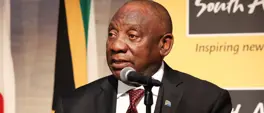Woman almost loses over R10k after cancelling hotel booking immediately after reserving
Tasleem Gierdien
7 November 2025 | 6:55'This was an extreme case, it shouldn’t have been a question; she should’ve received her money back,' says consumer journalist Wendy Knowler as she examines accommodation ‘no-refund’ policies.
- 702
- Afternoons with Relebogile Mabotja
- Relebogile Mabotja
- Consumer protection
- Wendy Knowler
- Consumer safety

Picture: © kadmy/123rf.com
A woman from Pretoria made a booking for three nights at a Cape Town hotel for an upcoming work trip in December via a popular online booking app, and then cancelled the booking within the hour.
The woman paid the full amount for the stay, which totalled R10,032.
Just after she’d made and paid for the booking, she was told that the rates exceeded her company’s limit. So, she cancelled.
Consumer journalist Wendy Knowler, who took up the case, explains that, according to the Consumer Protection Act, companies can charge a reasonable cancellation fee, dependent on several factors, mostly the likelihood of the hotel replacing that booking.
"So, the sooner you cancel after booking, the larger that refund should be. And if you cancel at the very last minute, you forfeit what you paid, with a sliding scale of refunds between those two extremes.
"In this case, the cancellation was virtually immediate, meaning the hotel has a very good chance of rebooking that room, particularly as December is peak season, explains Knowler.
She contacted the hotel, explaining that this woman is entitled to a full refund.
The hotel offered her a credit, but the woman needed to repay the company, so that was useless to her.
"This was an extreme example. It shouldn't have been questioned. She should've got her money back," says Knowler.
The hotel responded, saying:
“Ms X booked a non-refundable rate plan for her stay with us from December 10 to 14, which was clearly outlined at the time of booking.
"When she cancelled her booking shortly after making it, our team followed the standard procedure for non-refundable bookings and offered her a credit towards a future stay.
"However, upon reviewing the booking details, we noticed it was a same-day booking for a far-off date, and our team advised her to cancel through [a hotel booking app] to obtain a refund, which we believe she did. [The booking app referred her back to the hotel.]
"In line with our policies and the [booking app's] terms, we believe the refund process was handled correctly.
"Nevertheless, we understand the Consumer Protection Act's guidelines on refunds and appreciate your interpretation of the Act. Given the specifics of this case, we are willing to revisit the matter and engage in a discussion with Ms X directly to resolve any disputes amicably. We value our guests and would like to resolve this matter fairly."
After the hotel spoke to Ms X, she was refunded, but the hotel made it very clear that it believed its policy is correct.
Knowler then spoke to Consumer Goods and Services Ombud Lee Soobrathi about the legalities of 'no refund' policies on accommodation bookings, referring to the Consumer Protection Act.
According to Section 17(4), it does not prescribe a mathematical formula for calculating a reasonable charge. It provides broad guidance by stating that a charge is unreasonable if it exceeds a fair amount having regard to the factors presented at the time.
A charge is unreasonable if it exceeds a fair amount in the circumstances, having regard to the nature of the goods or services that were reserved or booked, the length of notice of cancellation provided by the consumer, the reasonable potential for the service provider, acting diligently, to find an alternative consumer between the time of receiving the cancellation notice and the time of the cancelled reservation; and lastly the general practice of the relevant industry.
This will be assessed on a case-by-case basis, but in summary, a ‘no-blanket refund policy’ may result in prohibited conduct in terms of S17 above.
Courts in South Africa have applied this and even ordered that a fee as much as 10% of the amount paid be charged, but then again, this will depend on the circumstances of each case, having regard to S17(4) of the CPA.
Interrogate the cancellation policy before you make a booking, advises Soobrathi and Knowler.
To listen to Knowler in conversation with Relebogile Mabotja on 702's Afternoon show, click below:
Get the whole picture 💡
Take a look at the topic timeline for all related articles.

















